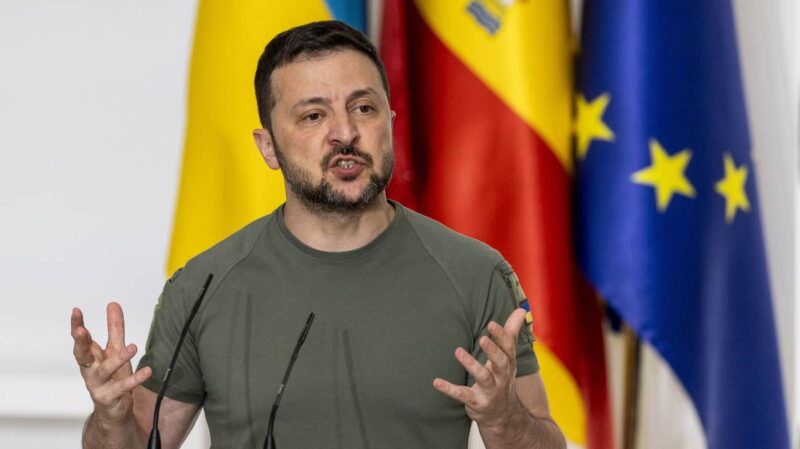Zelensky Publishes Data About Secret Support from China to Russia in the War Against Ukraine

President Volodymyr Zelensky made a high-profile statement, revealing intelligence that sheds light on China's active involvement on the side of Russia. According to him, Beijing not only does not conceal its cooperation with Moscow but also effectively supplies Russian military forces with important resources and assists in the production of weapons. This accusation highlights the scale of intrigues and geopolitical maneuvers taking place, complicating the frontlines and raising questions about China's commitments to peace and stability. Zelensky reported that Ukrainian intelligence currently has confirmed data on the supply of artillery shells and gunpowder from China to Russia. He stated that this information is verified and obtained from reliable sources, including security and intelligence agencies. At the same time, he emphasized that details of these supplies will be disclosed next week to provide a more detailed explanation to the public and international partners. The president underscored that the data not only concern arms supplies but also active activities of Chinese manufacturers in Russia, which contribute to strengthening the Russian military machine. Zelensky particularly emphasized that, despite assurances from China's leader Xi Jinping that China does not sell weapons to Russia, the actual facts indicate otherwise. He cited evidence of cooperation and even active assistance in the production of specific types of weapons, significantly complicating the situation for Ukraine and the world. The president noted that the information has already been collected and that relevant documents concerning this matter will be submitted to international institutions in the coming days. These statements are closely connected with earlier reports made by Zelensky in the spring. For instance, on April 8, the president informed the world that Ukrainian forces in Donetsk had detained two Chinese nationals fighting within Russian forces. This drew international attention to China's role in the conflict and caused diplomatic repercussions. Immediately afterward, Zelensky instructed Ukraine's Foreign Ministry to urgently establish contacts with Beijing to clarify the situation and determine China's intended response to these facts. Less than a week later, on April 11, the president announced that several hundred Chinese citizens were fighting as part of Russian occupation forces. This elicited surprise and concern in the international community, as Ukraine accused the Kremlin of attempting to prolong the war at any cost, even by involving foreign nationals in the conflict. According to Zelensky, the participation of Chinese nationals in the war indicates that Russia and its allies are actively engaging foreign fighters to bolster their military forces, which in turn casts doubt on China's promises of neutrality. A key aspect of this situation is the fact that the international community is clearly viewing these events within the broader context of the global struggle for power balance. It is crucial that Ukrainian authorities have evidence and plan to publicly present it at the end of the week. This could potentially serve as a new impetus to increase pressure on Beijing, which is openly or covertly assisting one side of the conflict, thus violating its diplomatic commitments not to support the aggressor. Amidst these developments, tensions in Ukrainian-Chinese relations are rising, and diplomatic circles are already talking about the likelihood of a deterioration in bilateral contacts. At the same time, experts emphasize that these facts open new horizons for understanding the roles of third countries in Russian aggression, highlighting that global principles and obligations require clear and decisive actions. So far, official Beijing has not commented on the Ukrainian president’s accusations, but most analysts believe these intelligence disclosures could lead to new diplomatic scandals and complicate international relations. Ukraine remains committed to addressing issues related to the involvement of third countries in the war and to advocating for a more active stance from the global community in countering the expansion of the conflict and preventing any form of cooperation with the aggressor. Overall, Zelensky’s statements indicate that the Ukrainian leadership is systematically and persistently working to uncover and document any external interference that complicates the situation in Ukraine and threatens global security. Observers note that these facts represent yet another manifestation of the complexity and multifaceted nature of the modern conflict, which is becoming increasingly international in character.

